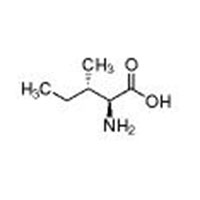Product Description
L-leucine is a naturally occurring amino acid that is essential for protein synthesis in the human body.
It is a branched-chain amino acid (BCAA) that is found in high concentrations in animal proteins, such
as meat, dairy, and eggs. L-leucine is also used as a dietary supplement and food additive due to its
beneficial effects on muscle growth and repair.
From a food grade perspective, L-leucine is a safe and effective ingredient that is widely used in the
food industry. It is commonly added to sports nutrition supplements, protein powders, and other health
products to support muscle growth, recovery, and performance. L-leucine is also used in food products to
enhance their nutritional value and flavor.
The performance benefits of L-leucine are well documented. As a BCAA, L-leucine plays a critical role in
muscle protein synthesis, which is the process by which muscle fibers are repaired and regenerated after
exercise. L-leucine also helps to reduce muscle damage and soreness, improve endurance, and increase
energy levels. These benefits make L-leucine a popular ingredient in sports nutrition products and
dietary supplements.
Aside from its performance benefits, L-leucine is also valued for its taste-enhancing properties.
L-leucine has a slightly sweet taste and can be used to improve the flavor of food and beverage
products. Additionally, L-leucine is highly soluble, which makes it easy to incorporate into a variety
of food and beverage applications.
In conclusion, L-leucine is a safe and effective ingredient that is widely used in the food industry.
Its beneficial effects on muscle growth, recovery, and performance make it a popular ingredient in
sports nutrition products and dietary supplements, while its taste-enhancing properties make it a
valuable addition to food and beverage products.





